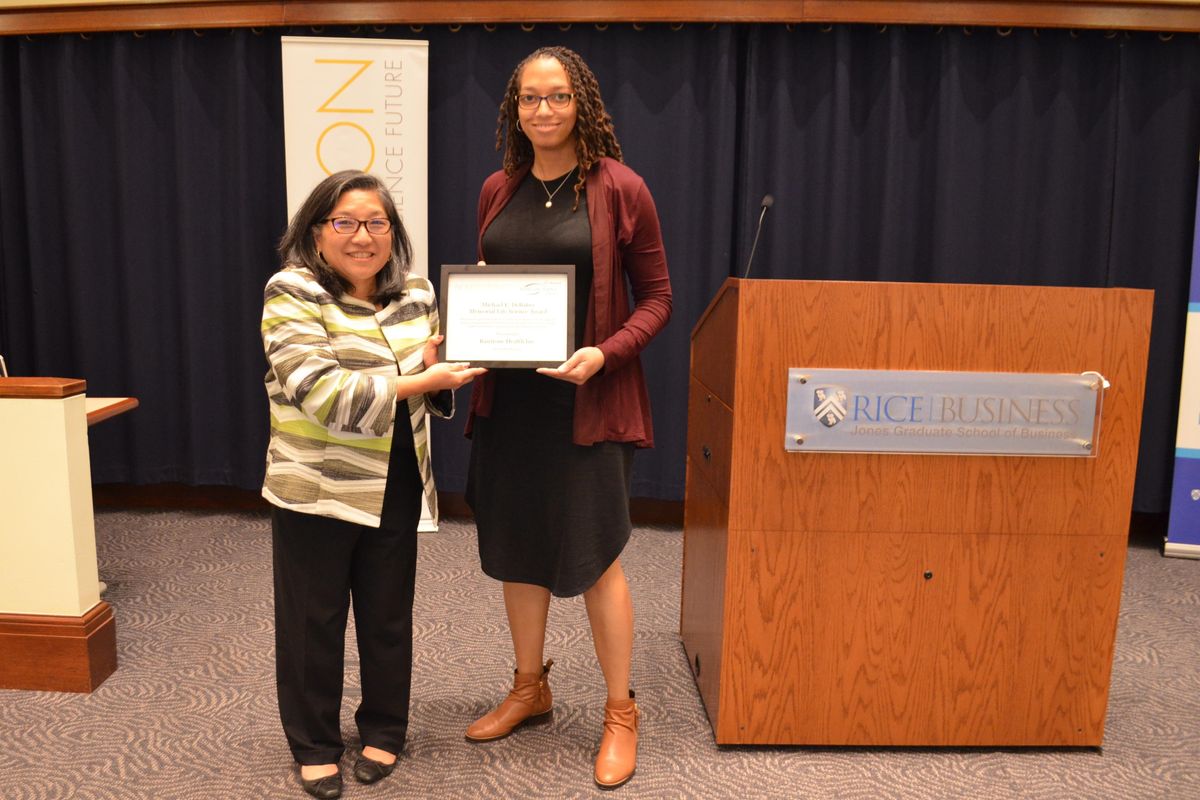New AI-focused innovation hub, Rice Nexus, debuts at The Ion Houston
Innovation Station
Rice University unveiled its new AI-focused "innovation factory," Rice Nexus, on Friday, February 14.
The 10,000-square-foot space, occupying two floors at The Ion, aims to support and provide resources for ventures that are looking to scale and have "artificial intelligence (AI) as a central pillar of its innovation strategy," according to a statement from Rice.
The space will be home to a dedicated AI venture accelerator and is already serving as a home base for several startups with ties to Rice. The companies include:
- Solidec, a climate-tech company co-founded by Rice professor Haotian Wang, research scientist Ryan DuChanois and alumnus Yang Xia
- Coflux Purification, co-founded by Rice students Alec Ajnsztajn, Jeremy Daum and Dana Vazquez with collaboration from professors Rafael Verduzco and Pulickel Ajayan
- BeOne Sports, a sports performance technology company founded by Rice alumni
- Voythos, which uses AI to predict the future health of patients with cardiovascular disease
Sanjoy Paul will lead Rice Nexus as executive director. Paul previously worked at Accenture LLC as a managing director of technology and is a lecturer in Rice's Department of Computer Science.
“We created the Rice Nexus in the Ion for Rice faculty, students and alumni to transform their breakthrough ideas into venture-ready startups,” Paul Cherukuri, Rice’s chief innovation officer and vice president for innovation, said in the release.
“With Sanjoy Paul at the helm, we are not only integrating AI into the core of our innovation efforts but also ensuring that Rice founders have the leadership, expertise and support they need to rapidly build and scale transformative companies.”
The space is part of Rice's latest 10-year strategic plan known as Momentous, which was announced in October. Rice University President Reginald DesRoches spoke with the Houston Innovators Podcast on the university's growth last fall. Click here to listen, and explore photos of the new space below.
- Houston innovation leader named to new role to drive strategy, programming ›
- Rice University leader balances tradition with innovation to drive growth, global impact ›
- Houston innovation hub restructures, pulls in more Rice resources ›
- Rice University launches hub in India to drive education, tech innovation abroad ›
- Google, Rice team up on new AI venture accelerator - InnovationMap ›
- Rice University to launch artificial intelligence major - InnovationMap ›
- Rice University Paul Cherukuri innovation exec departing for UVA - InnovationMap ›





 Ann Tanabe, CEO of BioHouston, presented the DeBakey Award to Houston-based Bairitone Health. Photo courtesy of Rice Alliance
Ann Tanabe, CEO of BioHouston, presented the DeBakey Award to Houston-based Bairitone Health. Photo courtesy of Rice Alliance Apple doubles down on Houston with new production facility, training center Photo courtesy Apple.
Apple doubles down on Houston with new production facility, training center Photo courtesy Apple.